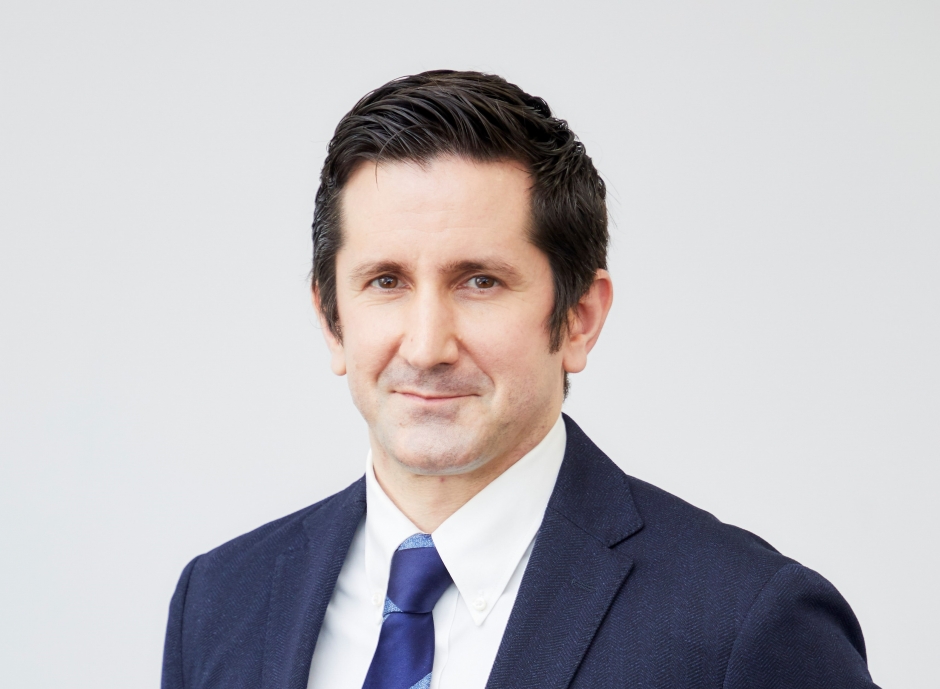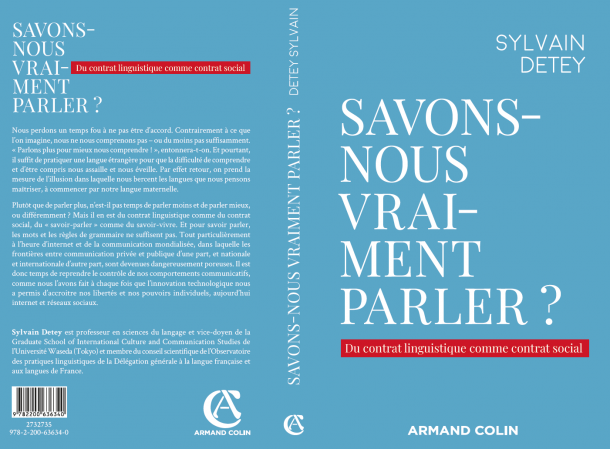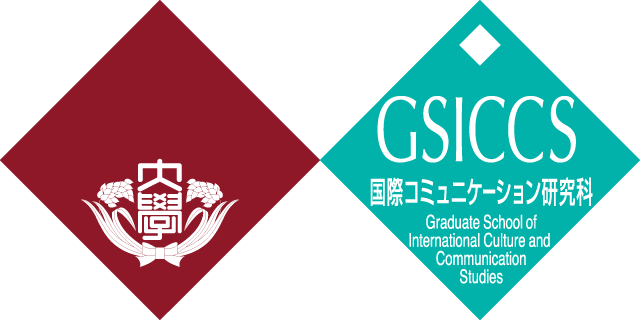- Faculty
- Professor DETEY published a book « Do We Really Know How to Speak? On the Linguistic Contract as a Social Contract »(provisional translation - original title in French : Savons-nous vraiment parler? Du contrat linguistique comme contrat social). Paris : Armand Colin, 416p.
Professor DETEY published a book « Do We Really Know How to Speak? On the Linguistic Contract as a Social Contract »(provisional translation – original title in French : Savons-nous vraiment parler? Du contrat linguistique comme contrat social). Paris : Armand Colin, 416p.

- Posted
- 2023年4月12日(水)
On April 5th 2023, Professor DETEY published his first monography targeting a wide readership in the field of language, education, global communication, journalism, media studies and political studies, entitled “Savons-nous vraiment parler? Du contrat linguistique comme contrat socal” (i.e., Do We Really Know How to Speak? On the Linguistic Contract as a Social Contract). Paris: Armand Colin, 416p. ISBN 9782200636340.
Armand Colin, founded in Paris in 1870, is one of the most prestigious French-language university publishers in Social and Human Sciences (it is now part of the Dunod house, Hachette group).
The book is available here.
This book explains why, at a time when everyone claims the right to say anything and everything in the public sphere, it is necessary to open our educational programs and public debates to in-depth discussions about the impact of “language” in our modern societies.
By linking language to civic and scientific education, and making it available to citizens of all generations, we will be better equipped to handle the effects of social networks and globalized rhetoric in a more constructive way.
Here are 13 questions, among others, that you may find answers to by reading this book:
- Why might the distinction between speaking “well” and speaking “badly” be meaningful or meaningless?
- Why might the lack of distinction between public speech and private speech be disastrous?
- Why should a mediatic life without verbal violence nor cyberbullying be possible?
- Why can language ultimately be a tool for social equality and therefore should be shielded from socio-ideological struggles?
- Why should the power of journalists and editors be politically reevaluated?
- Why should phonetic lessons help fight racism and favor inclusion?
- Why should first language and foreign language courses be taught jointly in part, especially with regard to freedom of speech?
- Why should linguistics classes be compulsory throughout primary, secondary and higher education, and linked to courses about civic education, history and sexual education?
- Why does speech education matter not only to the Ministries of Education and Digital Communication, but also to ministries in charge of justice, security, foreign and social affairs?
- Why should we reinvent a Ministry of Information and Communication respectful of 21st century democratic values, and why should this ministry put in place a compulsory stay-abroad program for all 18-year-olds?
- Why might automatic translation tools perpetuate the illusion of international communication?
- Why should we hope that our children will speak better than us?
- Why is this book as much for teachers, students, public celebrities, journalists and the main actors of our social and economic lives as for all global citizens that yearn for a better world?
And through these 13 Whys the reader should be able to imagine 13 Hows …
This book can be used as introductory reading material for communication studies in all academic fields, from Humanities to Social and Hard sciences, as well as for professional training.
Table of Contents:
Introduction: Speaking – can it be taken for granted?
1. Communication: a handicap for all
2. To be acknowledged in this world: should we speak eloquently, loudly, or sparingly?
3. The norm: should we all speak in the same way?
4. Variation: can we free ourselves from the way we speak?
5. When monolingual speakers become polyglots: the importance of learning two foreign languages
6. Native speaker or expert speaker? Teaching one’s own language
7. Plurilingualism and communicative uncertainty: information globalization and freedom of speech
8. Of the linguistic contract as a social contract: educational perspectives
9. Will the communication of the future still involve speaking?
Conclusion: communicative handicap, linguistic contract, and empathetic communication
Appendix 1: the 18 patronizing linguistic commandments
Appendix 2: why legislating about speech is difficult
Appendix 3: And you? How do you speak?
References

- Tags
- Announcement Publications お知らせ 出版
